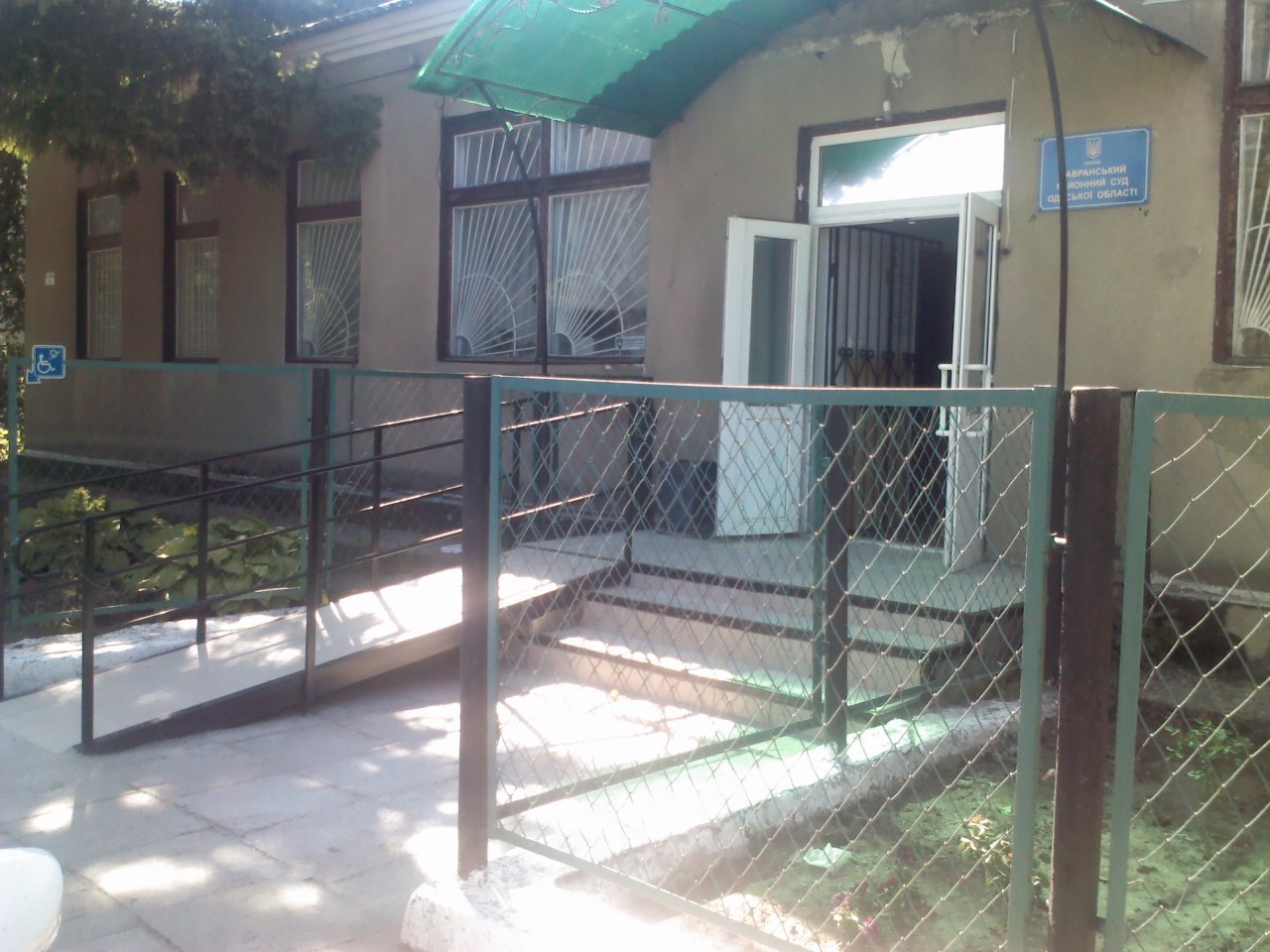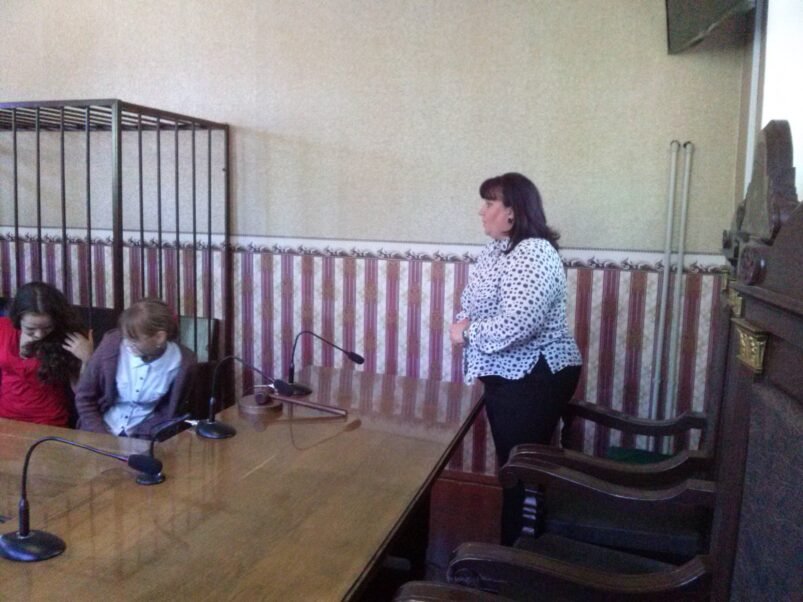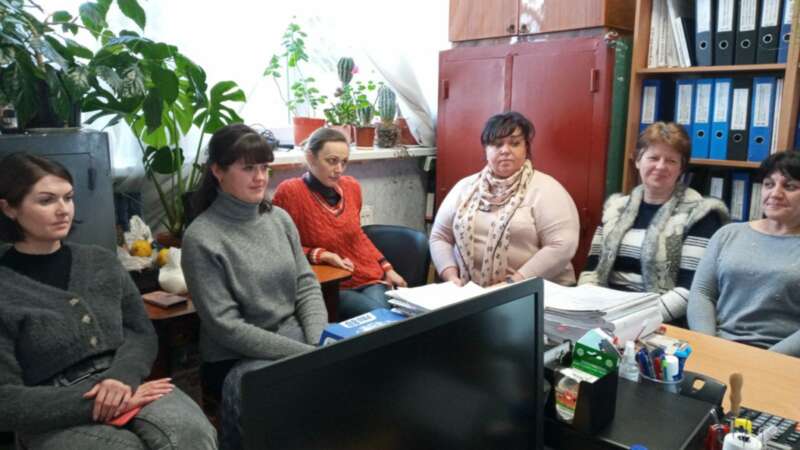
Judge Trachova, accused of taking a bribe, has been acquitted after 10 years of proceedings
The Pervomaisk City District Court of Mykolaiv Region acquitted judge of the Savran District Court of Odesa Region Oksana Trachova of charges of receiving unlawful benefits.
This is reported by the publication "Sudovy Reporter" with reference to the verdict of December 26.
According to the prosecution, in March-April 2013, the judge, with the assistance of court session secretary Tetyana Savchuk (Shvets), received $3,700 in unlawful benefits for imposing the most lenient punishment on two drug dealers.
The wife of one of the defendants reported the crime to the General Prosecutor’s Office.

So that law enforcement would believe her, the woman recorded conversations on an MP3 player. In particular, she recorded a conversation with the court secretary, indicating that a certain sum needed to be given to the judge for issuing the desired verdict. However, it was clear from the conversation that Trachova had already reduced the bribe amount from $5,000 to $4,000. The woman asked the secretary if she could pay the money in two parts because she had already sold her house, and relatives from Chernihiv were supposed to bring the money. The secretary allegedly responded that the judge would not agree. But in response to doubts, assured that the judge would certainly fulfill the paid service. At the end of the conversation, they arranged a personal meeting with the judge during the lunch break.
During the meeting with the judge, the woman again asked to postpone the court sessions because she didn’t have time to gather the money and asked to be allowed to pay half the amount, offering part of it during the conversation. Regarding the postponement of court sessions, the person considered to be the judge reluctantly agreed. As for the money, she ignored and did not respond to those remarks.
Subsequently, SSU employees provided the applicant with their equipment. After that, meetings with the cohabitant of the court session secretary were recorded, and he was given $3,000. The conversation indicated that the money was related to a court session scheduled for the next day. After the meeting, the man called his cohabitant (the court session secretary — ed.) and informed her that he had received the money. His interlocutor called the judge within a few seconds and passed this information to her.
During a search of Judge Trachova’s apartment, $200 was found in a red women’s handbag. In a glass vase on a shelf in the living room cupboard, there was a bundle of hundred-dollar bills. Subsequently, 17 bills from the judge’s apartment matched those provided to the applicant by law enforcement for the bribe.
In January 2015, the Ulyanovsk District Court of Kirovohrad Region found the judge and court secretary guilty, sentencing them to 5 years in prison each. But the verdict was annulled due to procedural violations, and the case was retried. In 2017, the Ulyanovsk District Court of Kirovohrad Region sentenced the judge to 7 years in prison and her accomplice to 5.
The appellate court in November 2017 overturned this verdict, citing a number of reasons: notification of suspicion by an unauthorized person, violations of territorial jurisdiction, illegal court composition due to an unresolved recusal application, and the first instance court’s failure to review procedural documents that were the basis for covert investigative actions.
In 2018, the case was transferred to the Pervomaisk City District Court of Mykolaiv Region, which immediately returned the indictment to the prosecutor. The appellate court annulled this decision. Afterward, the Pervomaisk City District Court heard the case for over 6 years and pronounced an acquittal.
Judge Trachova claimed that the money seized at her home belonged to her husband, and the $200 in the purse was planted. The defense’s position was that the investigation was conducted with significant violations. The applicant had repeatedly visited the judge and asked to postpone her husband’s case due to his illness or lack of money for a lawyer. Judge Trachova explained that it was necessary to write an application and attach supporting documents. She directed her to the court session secretary to draft the application. According to the defense, no mention of money for mitigation of punishment was made. Still, SSU and the General Prosecutor’s Office of Ukraine orchestrated a provocation.
The cohabitant of the court session secretary, through whom, according to the prosecution, the money was transferred, refused to testify. He cited Article 63 of the Constitution, which grants the right not to testify against oneself and family members.
In court, they questioned a man whom Savchuk’s cohabitant had borrowed money from and given a $100 bill, later confiscated by law enforcement. Another witness had bought a hundred-dollar bill of the bribe from some people on a street corner, which was also confiscated.
Other witnesses did not appear in court.
The main evidence in the case was materials from covert investigative actions. However, the prosecutor did not present the resolution authorizing crime control or the investigator’s judge’s order authorizing covert investigative actions in court. These documents would have proven the legality of the covert operations. Without them, the court deemed the recorded conversations and money transfers inadmissible evidence.
The search warrant for the judge’s premises concerned the banknotes used in the covert operations. The court decided that if all evidence obtained through covert operations was deemed inadmissible, then the money seized from the judge’s apartment could not be considered evidence either.
The court did not accept the MP3 player’s witness recordings, stating that they were sufficient grounds to initiate criminal proceedings but could not be recognized as admissible evidence since evidence collection is only possible in a law-prescribed manner.
According to the court, the applicant’s testimony alone was insufficient to conclude guilt.
Lastly, the court agreed that Trachova hadn’t gained suspect status because the notification of suspicion was handed by an unauthorized person — a simple investigator, not the Attorney General or his deputy. The court decided that, according to the 2013 legislation, the Attorney General and his deputy did not have the right to delegate to an investigator the service of suspicion on a judge, as was the case here.
Oksana Trachova was appointed a judge of the Savran District Court of Odesa Region in 2009, for the first time for a five-year term. After the announcement of suspicion, Trachova was suspended from office, and in 2014 her authority expired, but she remains on the court staff to this day, receiving a salary while not hearing cases.

In 2014, Trachova spoke to students during an open day event, and in 2017 performed tasks of court head. Trachova’s judicial qualification assessment was suspended pending the resolution of her criminal proceedings.

In October 2019, Trachova participated in a training for court heads in the Odesa Region on the topic of "Time Management." She reported a salary of 835,000 hryvnias from the judicial administration for 2023.
In the same court, Tetyana Savchuk continues working as a court session secretary.